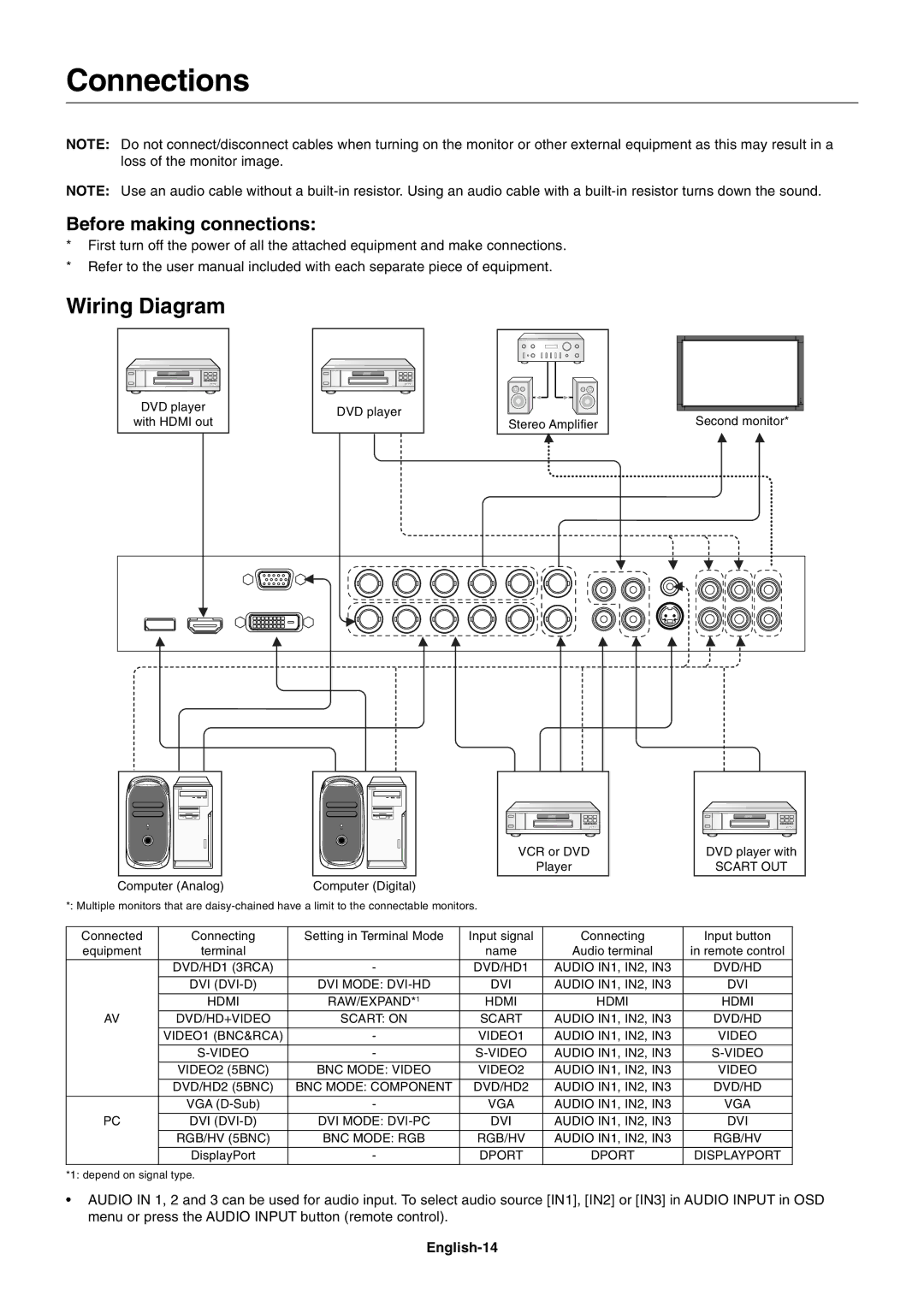
Connections
NOTE: Do not connect/disconnect cables when turning on the monitor or other external equipment as this may result in a loss of the monitor image.
NOTE: Use an audio cable without a
Before making connections:
*First turn off the power of all the attached equipment and make connections.
*Refer to the user manual included with each separate piece of equipment.
Wiring Diagram
DVD player |
with HDMI out |
DVD player |
Stereo Amplifier
Second monitor*
VCR or DVD |
Player |
Computer (Analog) | Computer (Digital) |
*: Multiple monitors that are
DVD player with |
SCART OUT |
Connected | Connecting | Setting in Terminal Mode | Input signal | Connecting | Input button |
equipment | terminal |
| name | Audio terminal | in remote control |
| DVD/HD1 (3RCA) | - | DVD/HD1 | AUDIO IN1, IN2, IN3 | DVD/HD |
|
|
|
|
|
|
| DVI | DVI MODE: | DVI | AUDIO IN1, IN2, IN3 | DVI |
|
|
|
|
|
|
| HDMI | RAW/EXPAND*1 | HDMI | HDMI | HDMI |
AV | DVD/HD+VIDEO | SCART: ON | SCART | AUDIO IN1, IN2, IN3 | DVD/HD |
|
|
|
|
|
|
| VIDEO1 (BNC&RCA) | - | VIDEO1 | AUDIO IN1, IN2, IN3 | VIDEO |
|
|
|
|
|
|
| - | AUDIO IN1, IN2, IN3 | |||
| VIDEO2 (5BNC) | BNC MODE: VIDEO | VIDEO2 | AUDIO IN1, IN2, IN3 | VIDEO |
|
|
|
|
|
|
| DVD/HD2 (5BNC) | BNC MODE: COMPONENT | DVD/HD2 | AUDIO IN1, IN2, IN3 | DVD/HD |
|
|
|
|
|
|
| VGA | - | VGA | AUDIO IN1, IN2, IN3 | VGA |
PC | DVI | DVI MODE: | DVI | AUDIO IN1, IN2, IN3 | DVI |
|
|
|
|
|
|
| RGB/HV (5BNC) | BNC MODE: RGB | RGB/HV | AUDIO IN1, IN2, IN3 | RGB/HV |
|
|
|
|
|
|
| DisplayPort | - | DPORT | DPORT | DISPLAYPORT |
*1: depend on signal type.
¥AUDIO IN 1, 2 and 3 can be used for audio input. To select audio source [IN1], [IN2] or [IN3] in AUDIO INPUT in OSD menu or press the AUDIO INPUT button (remote control).
